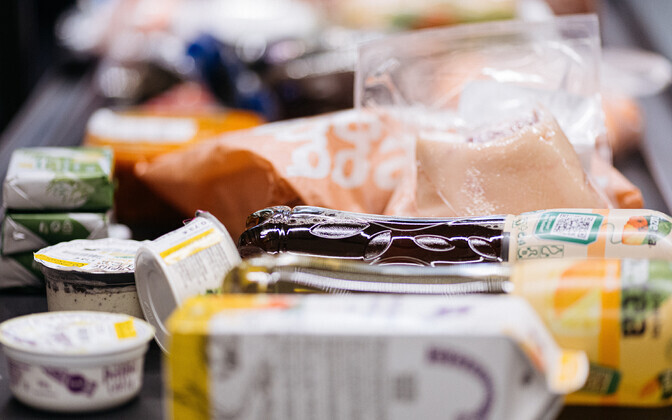Police and retailers confirm shoplifting is on the rise, with not only hardened crooks but also more so-called ordinary people now stealing, ETV’s “Impulss” reports.
“There are a lot of thefts, and I’d say especially more toward the end of the month, before benefits or salaries are paid. That’s when thefts increase,” said Oleg Gross, owner of the Grossi Toidukaubad retail chain.
While police registered about 3,600 shoplifting cases at this time last year, the number is higher this year.
“Compared with the same period last year, there have been 764 more theft cases connected to retail spaces. Police definitely see a sharply rising trend,” said Anders Allandi, head of the proceedings bureau at the Police and Border Guard Board.
According to Veiko Vares, head of internal control at the A1000 chain, the situation has reached the point where theft is no longer just committed by professional thieves — ordinary people are repeatedly stealing food.
“The cross-section is very mixed. There are even highly educated people, including schoolteachers, whom we’ve caught. Some people are deeply ashamed of their actions,” Gross said.
Sander Nurgamaa, head of Viking Security’s video surveillance center, confirmed that theft of everyday goods is on the rise and people are not just taking one item. Their explanation is simple: they don’t have money.
“It’s a rather sad situation. Even children have stolen, and you see on camera how they leave the store, open the package and eat it immediately. For example, a pack of cheese — Piknik cheeses are a common case. Or a small pack of sausages. They open it right away and eat it,” Vares said.
Strangely, milk is among the most stolen items because cartons often go unscanned at self-checkouts. Still, people usually try to steal more expensive groceries and take several at once.
Security guards pay close attention to self-checkouts. While many mistakes happen with handheld scanners, leading to items not being scanned, there are also many deliberate thefts.
Vares gave one example of a couple driving around Tallinn. “They buy some items, and the more expensive ones are hidden in the bag. At the meat counter, they took smoked sausage, but when they reached the register, they scanned only milk, bread, potatoes and mandarins. The sausage was missing. I was there during their detention. I spoke with them and they said they had no money,” said the Alko1000 representative.
Suspicious individuals are watched daily. Sometimes a suspect is monitored for an hour or more, because slipping an item into a bag or pocket isn’t yet an offense — the violation only begins when they leave without paying.
A surveillance center monitoring nearly 100 stores across Estonia records dozens of thefts every day.
“There are more thefts in big cities, in high-rise residential areas, where people of simpler means live. To be specific, there are a lot of thefts in Lasnamäe, Kohtla-Järve and Narva,” Gross said.
 Oleg Gross Autor/allikas: ERR
Oleg Gross Autor/allikas: ERR
Although cameras make it easier to monitor shoppers and may deter some petty thieves, not all thefts are detected — and even fewer make it into police statistics.
Gross admitted that most shoplifters don’t get caught. “A thief can see where the camera is, turn their back to it, quietly slip the product into their coat or bag and when they leave with the goods, there’s nothing you can do afterward once you realize something is missing.”
Anders Allandi, head of the Police and Border Guard Board’s proceedings bureau, acknowledged that if the damage is small, many stores don’t even file a criminal report. “Preparing and submitting the report takes more resources than the benefit it brings,” he explained.
Veiko Vares from the Alko1000 chain believes the recently revived proposal to lower the value-added tax on food would make life easier for retailers, since people would be able to buy more.
Gross sees the solution in reducing the tax burden on low-income people so they can get by with what little they have. “It’s clear that some people have very limited means, and it’s especially visible at the end of the month, when the number of customers drops by 10–15 percent a day. You can’t assume a person is somehow built to eat less at the end of the month. Appetite is the same at the beginning and end.”
Nurgamaa from Viking Security’s surveillance center, however, doubts that lowering the food VAT rate alone would help, since people are also stealing shampoo, cosmetics and toys. “It would only make a difference if all prices went down,” he said.
The fact remains that every stolen pack of butter, sausage, shampoo or laundry capsules is ultimately paid for by the honest customer.
—
Follow ERR News on Facebook and X and never miss an update!
